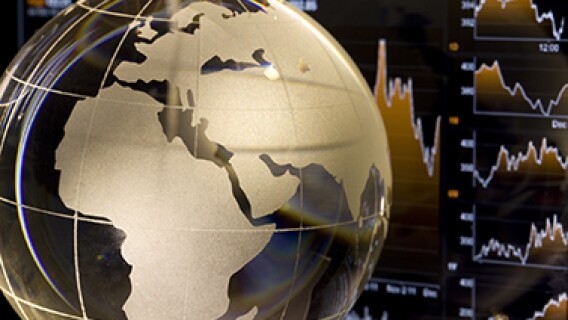Last Friday, the sudden implosion of Turkey’s currency triggered a swift drop in U.S. stocks. But the impact in the cratering of Turkey’s lira is more pronounced in overseas markets—particularly among world bank stocks.
The decline in the lira stems from sanctions imposed by the U.S. on Turkey for its refusal to release American pastor Andrew Brunson, detained there for nearly two years. President Trump decided to double tariffs on Turkish steel and aluminum, creating fears of an economic crisis in Turkey (historically an American ally), prompting the lira to fall to a record-low 7.23 against the U.S. dollar.
Reverberations from the Turkey currency crisis have been felt around the globe since Friday, but financial stocks from Europe to Africa have felt the brunt of the damage as fears of contagion spread. Banks with exposure to Turkey were hit hardest.
Five World Bank Stocks Hit Hard
To give you an idea of how far the Turkish economic crisis tentacles spread, here are five world bank stocks – from four different countries – that have especially taken it on the chin in the last few trading days:
[text_ad use_post='129628']
- Spain: Banco Bilbao Vizcaya Argentaria (BBVA): -10.4% in three trading days
- France: BNP Paribas (BNPQY): -5.5% in three trading days
- Italy: UniCredit (UNCRY): -10.5% in three trading days
- South Africa: Investec (INVP.L): -5.7% in three trading days
- South Africa: Old Mutual (OMU.L): -5% in three trading days
Fortunately, U.S. bank stocks haven’t been hit nearly as hard. The Financial Select Sector SPDR ETF (XLF) has lost just 1.7% of its value since closing at a five-month high last Wednesday, and still trades above both its 50- and 200-day moving averages. That’s not much of a dent.
So, while the Turkey currency crisis has inflicted little more than a flesh wound on U.S. markets, the overseas impact has been far more profound, particularly in the financial sector. South African bank stocks like Investec and Old Mutual are pretty niche; I bet most of you have never heard of those companies, never mind invest in them.
But BNP Paribas is pretty mainstream—the world’s eighth-largest bank by total assets, and carrying a $77 billion market cap. Ditto Banco Bilbao, which is the second-largest bank in Spain and actually trades on the New York Stock Exchange, not over the counter. In the coming days, it’s worth keeping an eye on those and other world bank stocks. If they continue to plummet—and if the threat of a full-on economic crisis in Turkey becomes more real—it could spread to other institutions, perhaps to financial stocks you’re more likely to own.
There have been myriad potential Trump-related crises of late—the impact of the China-U.S. trade war on Chinese stocks comes to mind. Few of them, however, have made a lasting dent. Our Cabot Global Stocks Explorer advisory, for example, has an average gain of more than 20% among its seven holdings as of this writing, thanks to the wisdom of its chief analyst, Paul Goodwin.
If international investing—and emerging markets in particular—is your jam, then I highly recommend subscribing to Paul’s service. With strict loss limits and a focus solely on American Depositary Receipts (ADRs)—i.e. international stocks vetted and approved by the U.S. Securities and Exchange Commission (SEC)—Paul takes a lot of the risk out of emerging market investing in his Cabot Global Stocks Explorer approach.
Interested? Click here.
[author_ad]

